Jie Jin, M.D., Ph.D.
Professor; Chief Physician
Academic leader
Focus on Leukemia area

Background
With the rapid development of modern medicine, the diagnostic and treatment technologies for hematologic diseases are constantly being updated and becoming more comprehensive. Thus, there is an urgent practical need to carry out clinical training programs in the department of hematology, aiming to enhance the professional qualities of hematologists so as to better serve patients with hematologic diseases.
Purpose
Master advanced international diagnosis and treatment technologies.
Target group
Fellows, residents and medical students.
Our department has 14 specialized wards, with a total of more than 600 beds. There are 11 major clinical subspecialty directions, such as leukemia, lymphoma, multiple myeloma, myelodysplastic syndrome, bleeding and clotting disorders, cellular immunotherapy, and bone marrow transplantation. It has a complete MICM diagnostic technology platform and routinely conducts next-generation sequencing. It is one of the largest hematology disciplines in China. The center carries out the diagnosis and treatment of various hematological diseases. Every year, it receives more than 100,000 outpatient visits and admits more than 20,000 inpatients.
The discipline of hematology is a team that closely combines clinical practice with basic research, and has a professional academic team in the field of hematology with excellent medical skills and profound academic attainments. In the clinical team, there is currently 1 special-grade expert in Zhejiang Province, 2 Qiushi Distinguished Scholars of Zhejiang University, 1 Qiushi Distinguished Physician of Zhejiang University, 53 with senior professional titles, 12 doctoral student supervisors, 30 master's student supervisors, and 26 professional technicians in the laboratory. The basic research team has 16 professors, among whom 6 are national Young Thousand Talents and 2 are national Outstanding Young Scholars.
Prospected outcome
Continuous innovation, cooperation and exchange.
Goal of the program
1. Master advanced international diagnosis and treatment technologies of hematological diseases.
2. Understand clinical research and the latest progress in hematological diseases.
The program provides a full-time, 2-week to 12-month training experience. In special circumstances, arrangements can be made for other lengths of training depending on your needs and interests.
• Fellows: Verified clinical or research position overseas and more than 36-month working experience in the department of hematology.
• Residents: To be eligible for the Hematology residency, you must have successfully completed a board-approved program in Internal Medicine or clinical working experience at the department of hematology.
• Students:
1. Must be a final-year medical student when you are scheduled to participate in the rotation. This means all your core / required clerkship rotations are complete at the time of the clinical elective.
2. Medical School Approval - Letter of good standing from the dean's office of your medical school indicating you are in the final year with your expected graduation date, in good academic standing and meet all requirements to complete an elective for academic credit.
Focusing on the diagnosis and treatment of hematological malignancies, precise diagnosis and clinical prognostic staging has been established in multiple subspecialties such as leukemia, myelodysplastic syndrome, multiple myeloma, myeloproliferative neoplasms, bone marrow transplantation, and cell-immunotherapy, reaching the leading domestic and advanced international level:
1. A new system for the precise diagnosis and treatment of acute leukemia has been constructed. The HAA regimen for AML treatment was pioneered internationally, improving the remission rate and survival rate, providing a new option for AML treatment. It has been written into the Chinese AML Diagnosis and Treatment Expert Consensus and has become the treatment regimen for newly diagnosed AML and relapsed AML, winning the Second Prize of the National Science and Technology Progress Award (2011).
2. The combination of venetoclax and the standard "3+7" chemotherapy regimen for the treatment of newly diagnosed AML in young adults was proposed for the first time internationally, which can achieve a higher remission rate, deeper remission, and rapid recovery from myelosuppression. The results of this study were published in Lancet Haematology, providing evidence for the application of the DAV regimen in newly diagnosed adult AML patients.
3. The chemotherapy-free regimen of the third-generation TKI combined with venetoclax for the treatment of relapsed and refractory Ph+ ALL was first carried out in China. The CR/CRi rate reached 89.5% in one cycle, and the CMR rate reached 42.1%. The results were published in BCJ and were cited by Professor Sabina Chiaretti in a recent review of Ph+ ALL published in NEJM. It is the only research result from mainland China that has been cited.
4. A precise diagnosis and treatment system for MDS has been constructed. The original epigenetic pre-excitation treatment method for high-risk MDS (decitabine combined with a reduced IA regimen) has been promoted both inside and outside the province and incorporated into the Chinese MDS Diagnosis and Treatment Guidelines. It won the Second Prize of the Zhejiang Science and Technology Progress Award (2020).
5. The treatment of adult patients with newly diagnosed hemophagocytic syndrome with ruxolitinib combined with dexamethasone was carried out early in China. The 2-year OS reached 86.7%, reducing early death. A phase III study is on.
6. Taking the rare disease Castleman as a breakthrough, the no-maintenance treatment strategy for iMCD treatment reaching PR and above was proposed for the first time. The impact of COVID-19 on iMCD was statistically analyzed, and several studies on the short-course RCD regimen for the treatment of iMCD were carried out.
7. The most standardized, longest-followed, and multi-center clinical trials at home and abroad were carried out, with 744 cases enrolled. The international first early prediction model for the transformation of ET to post-ET MF was established.
Monday
1st Week: introduction & welcome, program overview and objectives
Weekly: MDT conferences, complicated case study
Tuesday
Weekly: outpatient observation, journal club.
Biweekly: Mentor one-on-one training
Wednesday
Weekly: clinical rounds.
Biweekly: clinical trial training
Thursday
Weekly: complicated case study, case-based discussion
Biweekly: grants writing training.
Friday
Weekly: clinical rounds, clinical skills training, special task training
Last Week: wrap-up & reflection, participant presentations or discussion of key takeaways, feedback session (e.g. online survey or live Q&A)
There would be written tests or report submissions for appliers, and also training-certificates would be provided. After each rotation, each faculty member evaluates each fellow according to core competencies of patient care, medical knowledge, practice-based learning and improvement, interpersonal and communication skills, professionalism, and system-based practice. Faculty members meet with fellows individually for verbal feedback and evaluation.

Professor; Chief Physician
Academic leader
Focus on Leukemia area

Professor; Chief Physician
Director of Hematology Department
Focus on MDS area
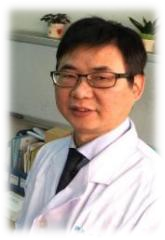
Chief Physician
Vice Director of Hematology Department
Focus on Multiple myeloma area
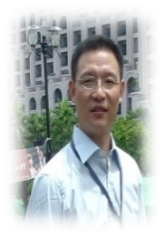
Chief Physician
Vice Director of Hematology Department
Focus on Lymphoma area
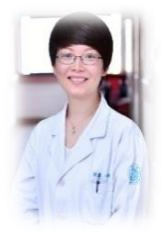
Chief Physician
Vice Director of Hematology Department
Focus on Lymphoma area
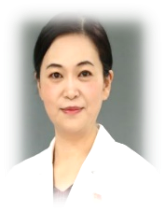
Chief Physician
Vice Director of Hematology Department
Focus on Myeloproliferative Neoplasms area

Vice Professor; Vice Chief Physician
Director assistant in Department of Hematology
Focus on Leukemia area
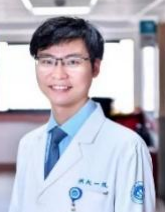
Vice Chief Physician
Director assistant in Department of Hematology
Focus on Plasma Cell Disease area.
The program is free of charge.